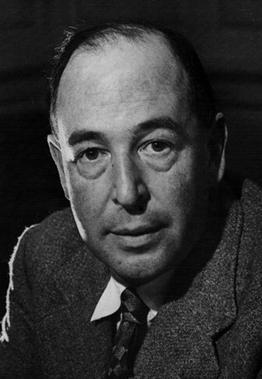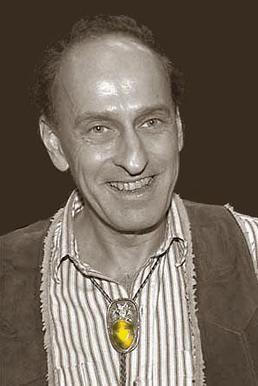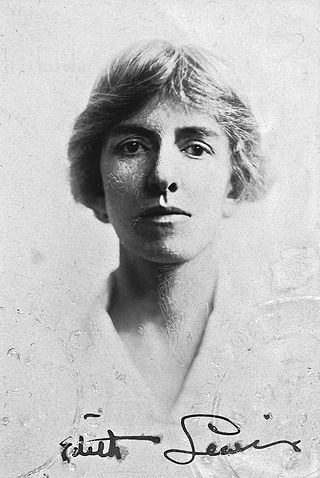
Clive Staples Lewis was a British writer, literary scholar, and Anglican lay theologian. He held academic positions in English literature at both Magdalen College, Oxford (1925–1954), and Magdalene College, Cambridge (1954–1963). He is best known as the author of The Chronicles of Narnia, but he is also noted for his other works of fiction, such as The Screwtape Letters and The Space Trilogy, and for his non-fiction Christian apologetics, including Mere Christianity, Miracles, and The Problem of Pain.

Roger Joseph Zelazny was an American poet and writer of fantasy and science fiction short stories and novels, best known for The Chronicles of Amber. He won the Nebula Award three times and the Hugo Award six times, including two Hugos for novels: the serialized novel ...And Call Me Conrad (1965), subsequently published under the title This Immortal (1966) and then the novel Lord of Light (1967).

Marion Eleanor Zimmer Bradley was an American author of fantasy, historical fantasy, science fiction, and science fantasy novels and is best known for the Arthurian fiction novel The Mists of Avalon and the Darkover series. She was noted for the feminist perspective in her writing.
Edward Groff Conklin was an American science fiction anthologist. He edited 40 anthologies of science fiction, one of mystery stories, wrote books on home improvement and was a freelance writer on scientific subjects as well as a published poet. From 1950 to 1955, he was the book critic for Galaxy Science Fiction.

Judith Josephine Grossman, who took the pen-name Judith Merril around 1945, was an American and then Canadian science fiction writer, editor and political activist, and one of the first women to be widely influential in those roles.

John Joseph Vincent Kessel is an American author of science fiction and fantasy. He is a prolific short story writer, and the author of four solo novels, Good News From Outer Space (1989), Corrupting Dr. Nice (1997), The Moon and the Other (2017), and Pride and Prometheus (2018), and one novel, Freedom Beach (1985) in collaboration with his friend James Patrick Kelly. Kessel is married to author Therese Anne Fowler.

The Mythopoeic Awards for literature and literary studies are given annually for outstanding works in the fields of myth, fantasy, and the scholarly study of these areas. Established by the Mythopoeic Society in 1971, the Mythopoeic Fantasy Award is given for "fiction in the spirit of the Inklings", and the Scholarship Award for non-fiction work. The award is a statuette of a seated lion, with a plaque on the base. It has drawn resemblance to, and is often called, the "Aslan".

The Dark Tower is an incomplete manuscript written by C. S. Lewis that appears to be an unfinished sequel to the science fiction novel Out of the Silent Planet, though doubts have been raised about its authenticity. Perelandra instead became the second book of Lewis' Space Trilogy, concluded by That Hideous Strength. Walter Hooper, Lewis' literary executor, titled the fragment and published it in the 1977 collection The Dark Tower and Other Stories. The Lewis scholar Kathryn Lindskoog challenged the authenticity of the work.
Terence Ian Fytton Armstrong, better known as John Gawsworth, was a British writer, poet and compiler of anthologies, both of poetry and of short stories. He also used the pseudonym Orpheus Scrannel. He declared himself king of the unrecognized micronation of the Kingdom of Redonda in 1947, and started calling himself King Juan I.
Edward Lewis Ferman is an American science fiction and fantasy editor and magazine publisher, known best as the editor of The Magazine of Fantasy and Science Fiction (F&SF).

David Geddes Hartwell was an American critic, publisher, and editor of thousands of science fiction and fantasy novels. He was best known for work with Signet, Pocket, and Tor Books publishers. He was also noted as an award-winning editor of anthologies. The Encyclopedia of Science Fiction describes him as "perhaps the single most influential book editor of the past forty years in the American [science fiction] publishing world".
Kathryn Ann "Kay" Lindskoog was a C. S. Lewis scholar known partly for her theory that some works attributed to Lewis are forgeries, including The Dark Tower.
Walter McGehee Hooper was an American writer. He is best known as the editor of many posthumous books by C. S. Lewis, as the joint author of a biography of Lewis and as the literary advisor of Lewis's estate. He was also a literary trustee for Lewis's friend Owen Barfield from December 1997 until October 2006.
John Francis Carr is an American science fiction editor and writer as well as the executor of the literary estate of H. Beam Piper.

The Other Side of the Moon is an anthology of science fiction stories edited by American writer August Derleth. It was first published by Pellegrini & Cudahy in 1949. Many of the stories had originally appeared in the magazines The Graphic Christmas, Astounding Stories, Thrilling Wonder Stories, Wonder Stories, Weird Tales, Blue Book, Planet Stories, The Saturday Evening Post, Collier's Weekly or in the collections The Fourth Book of Jorkens by Lord Dunsany and The Witchfinder by S. Fowler Wright.

The Poets and Poetry of America was a popular anthology of American poetry collected by American literary critic and editor Rufus Wilmot Griswold. It was first published in 1842 and went into several editions throughout the 19th century.

The Nebula Awards annually recognize the best works of science fiction or fantasy published in the United States. The awards are organized and awarded by the Science Fiction and Fantasy Writers Association (SFWA), a nonprofit association of professional science fiction and fantasy writers. They were first given in 1966 at a ceremony created for the awards, and are given in four categories for different lengths of literary works. A fifth category for film and television episode scripts was given 1974–78 and 2000–09, and a sixth category for game writing was begun in 2018. In 2019 SFWA announced that two awards that were previously run under the same rules but not considered Nebula awards—the Andre Norton Award for Middle Grade and Young Adult Fiction and the Ray Bradbury Award for Outstanding Dramatic Presentation—were to be considered official Nebula awards. The rules governing the Nebula Awards have changed several times during the awards' history, most recently in 2010. The SFWA Nebula Conference, at which the awards are announced and presented, is held each spring in the United States. Locations vary from year to year.
This is a list of writings by C. S. Lewis.
Francis Spufford FRSL is an English author and teacher of writing whose career has shifted gradually from non-fiction to fiction. His first novel Golden Hill received critical acclaim and numerous prizes including the Costa Book Award for a first novel, the Desmond Elliott Prize and the Ondaatje Prize. In 2007 Spufford was elected a Fellow of the Royal Society of Literature.

Edith Lewis was a magazine editor at McClure's Magazine, the managing editor of Every Week Magazine, and an advertising copywriter at J. Walter Thompson. Lewis was Willa Cather's domestic partner and was named executor of Cather's literary estate in Cather's will. After Cather's death, Lewis published a memoir of Cather in 1953 titled Willa Cather Living.









